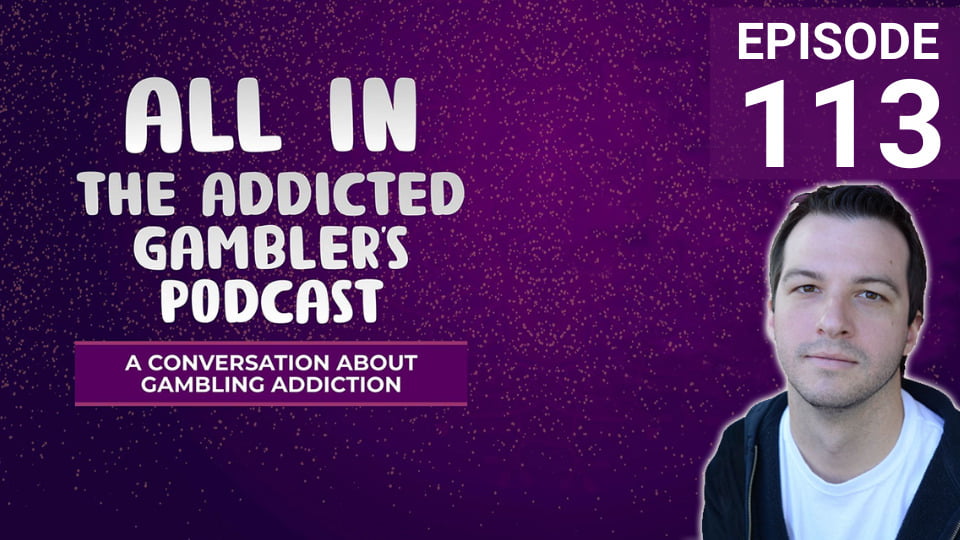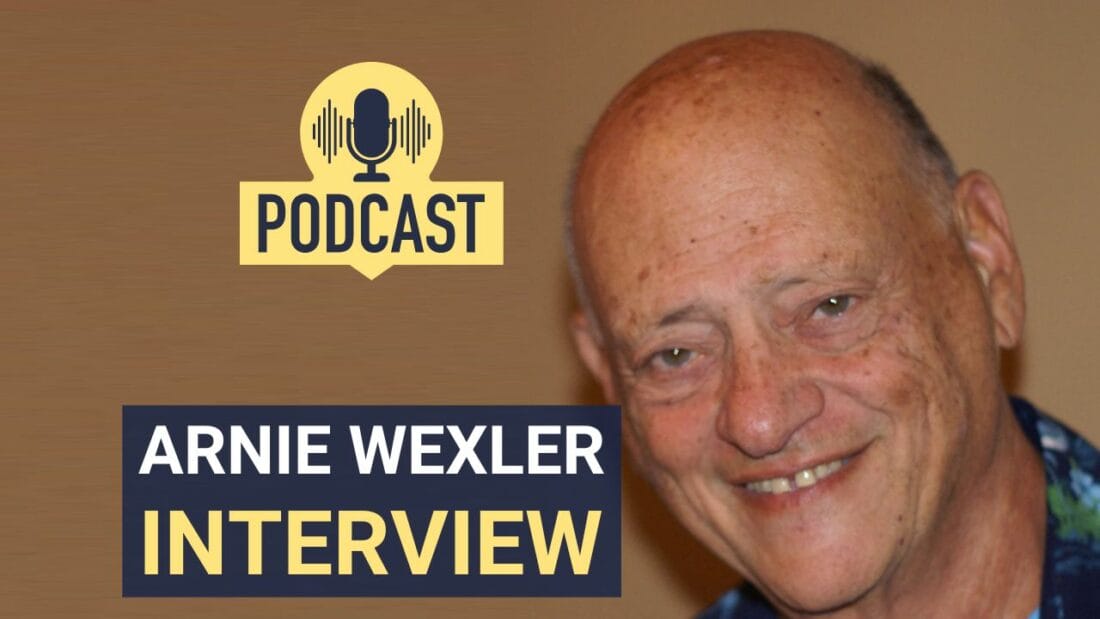Super Summary:
Arnie Wexler, a prominent figure in the gambling recovery community, shares his personal story of addiction, recovery, and advocacy in this podcast episode. From childhood baseball card games to his gambling honeymoon, Arnie’s addiction had a devastating impact on his life, including leaving his wife alone during a miscarriage. He credits Gamblers Anonymous and supportive coworkers for helping him on his journey to recovery, which eventually led to his work with the New Jersey Council on Gambling and Trump Casinos. Arnie also discusses the stigma associated with compulsive gambling and the importance of public awareness.
5 main Discussion Topics:
- Arnie Wexler’s personal story of addiction and recovery
- The impact of gambling on personal relationships
- The stigma associated with compulsive gambling
- The evolution of the gambling industry and its impact on addiction
- Advocacy and public awareness efforts for gambling addiction
Flipping baseball cards, shooting marbles, and playing pinball machines
Arnie’s gambling addiction started at a young age, around 7 or 8 years old. He was flipping baseball cards, shooting marbles, and playing pinball machines. His addiction progressed as he grew older, and he even took two of his dates to the racetrack. When Arnie Wexler met his wife Sheila at 21, they had their first date at a baseball game and their second at a racetrack. Their subsequent dates almost always involved gambling in some form.
After getting married, Arnie’s gambling problem continued to escalate. He spent most of their honeymoon focused on gambling-related activities, and it began to affect their marriage. Arnie gambled every day while serving in the Army reserves for six months and ended up owing $4,000 to a bookmaker in 1962.
Arnie’s addiction led to some truly low points in his life, such as leaving his wife alone during a miscarriage because he was busy gambling. He also struggled to balance work and gambling, even involving his coworkers in his addiction.
The turning point: Jerry and Gamblers Anonymous
However, things began to change when Arnie’s new boss, Jerry, recognized his gambling problem and sent him to Gamblers Anonymous (GA). After attending meetings for three weeks, Arnie was encouraged to bring Sheila to a pressure relief meeting, where he was told he needed two more jobs to handle his debts. Despite initially thinking that the GA members were crazy, Arnie persisted with the program.
On April 10th, 1968, Arnie Wexler made a small bet and lost, which finally burst his bubble. Since then, he has been actively involved in GA and has devoted his life to recovery. Arnie’s story is a powerful reminder of the devastating impact of gambling addiction and the hope that recovery can offer.
Jeff was recently discussing with Brian about how he found Arnie and Sheila Wexler’s book on gambling addiction riveting. He appreciated how the book shared both Arnie’s and Sheila’s perspectives on different events. Arnie explained that the idea to present both perspectives wasn’t necessarily anyone’s specific idea, but rather a result of various interviews and conversations with different writers and publishers over the years. He admitted that he found it difficult to read Sheila’s contributions at times, even though they had happened decades ago.

Jeff mentioned that he hid his gambling from his wife, while Brian didn’t marry until he had started his recovery. Arnie noted that it’s not unusual for young gamblers to be unmarried because they’re often too preoccupied with gambling. Arnie then shared the story of how he came to fully embrace his recovery from gambling addiction, which was marked by a visit to Green Haven Prison in 1968. He realized that he didn’t want to end up separated from his loved ones by a prison fence.
Work with the New Jersey Council on Gambling
Arnie explained that he and Sheila started the New Jersey Council on Gambling with the help of a friend, Riley Ragan, who secured initial funding for the organization. After Arnie experienced health issues, he and Sheila transitioned to doing seminars and workshops all over the country.
Arnie shared how they eventually started working for Trump Casinos, training their employees and helping casino workers with gambling addiction. He noted that it’s astonishing how many casino workers have gambling addiction problems and that some casino executives have been helpful in assisting those with gambling issues.
Jeff asks Arnie about his view on gambling, mentioning Arnie’s previous interaction with Tony Guy in New York.
Arnie Wexler recounts the history of the National Council on Compulsive Gambling and how they initially refused to take money from the gaming industry. Arnie explains that when he took over the New Jersey Council, he wrote to casinos asking for support, which marked the first time a council received funding from the gaming industry.
Arnie goes on to describe how Steve Norton from Resorts International became involved in the council’s work after someone in his family had a gambling addiction. Norton put up the 800-GAMBLER helpline number in his casino, which eventually led to the number being displayed in all casinos and lottery establishments.
Jeff shares his experience with outreach work and the surprising number of people who disclose stories of family members or friends who have struggled with gambling addiction. Arnie agrees, pointing out that many gamblers are afraid to tell someone about their addiction because of the embarrassment and shame associated with it. He refers to compulsive gambling as a “hidden illness” and notes that people with gambling addiction are often viewed as crooks and bad people, unlike those with other addictions like alcoholism or drug addiction.
Gambling Stigma and awareness
Throughout the conversation, the speakers share stories about their personal experiences with gambling and the impact of the addiction on their lives.
Jeff and Arnie discuss the evolution of gambling and the many more opportunities available for people to gamble today compared to the past. Arnie Wexler believes that if he were gambling today, with all the sports betting, casinos, and lotteries available, he would have ended up killing himself.
Brian shares his concerns about the prevalence of gambling in Australia and the UK, with betting shops everywhere and advertising being so widespread. He fears that the situation could become similar in the US, with sports betting being just the first wave. Arnie agrees and shares his experiences witnessing the same in London and Spain.
The conversation moves on to discuss what can be done to help change the current situation. Arnie emphasizes the importance of spreading public awareness about compulsive gambling as a disease rather than a personal failing. He recounts his resignation from the National Council on Compulsive Gambling in 1991 due to disagreements with their practices. Arnie notes that there are people in positions of power who could help raise awareness but are afraid to go public.
Brian and Arnie touch on the topic of Gamblers Anonymous meetings, and Arnie mentions that he has been to meetings in 47 states. They discuss a particularly successful meeting in New York, which was started by Arnie’s friend from Las Vegas. Jeff then reflects on Arnie’s willingness to share his painful experiences to inspire others and demonstrate the resilience and ability to change that people have in recovery. Arnie adds that compulsive gamblers tend to have higher IQs but also the highest suicide rate among addicts due to the hidden nature of their addiction.
Jeff asks Arnie Wexler if he believes he was meant to take this path in life, to which Arnie responds that he has never thought about it that way. He considers the connections he has made with incredible people and the support he has received from those in various industries, suggesting that perhaps a higher power guided him to do something with his experiences.
Jeff and Brian express their gratitude to Arnie for his help in their recovery from gambling addiction. They briefly discuss Dr. Custer, the person responsible for recognizing gambling disorder as an addictive disorder in the DSM (Diagnostic and Statistical Manual of Mental Disorders). Arnie mentions how the casino industry influenced some of the criteria for gambling disorder in the DSM.
Jeff shares his belief that the difference between a compulsive gambler who hasn’t stolen money and one who has is simply opportunity. Arnie Wexler agrees and talks about his own experiences with stealing and other illegal activities to support his gambling habit. He also shares an anecdote about a time when he received horse racing tips from a former professional baseball player, which eventually led him to betting larger amounts of money.
Arnie then tells the story of his friendship with Dr. Custer, who helped him through a difficult period of depression when there were no medications available for treating the condition. Arnie credits Dr. Custer with saving his life during that time, and they became close friends, even staying at each other’s homes on numerous occasions.
We warmly recommend you listen to the full podcast episode. You can listen to it here.
Conclusion
Arnie Wexler’s story serves as a powerful reminder of the devastating impact of gambling addiction and the hope that recovery can offer. Through his work with the New Jersey Council on Gambling and Trump Casinos, Arnie has helped countless individuals struggling with gambling addiction. This podcast episode highlights the importance of public awareness, advocacy, and support systems such as Gamblers Anonymous in the recovery process. Arnie’s willingness to share his painful experiences and work towards helping others is an inspiring example of resilience and positive change.

